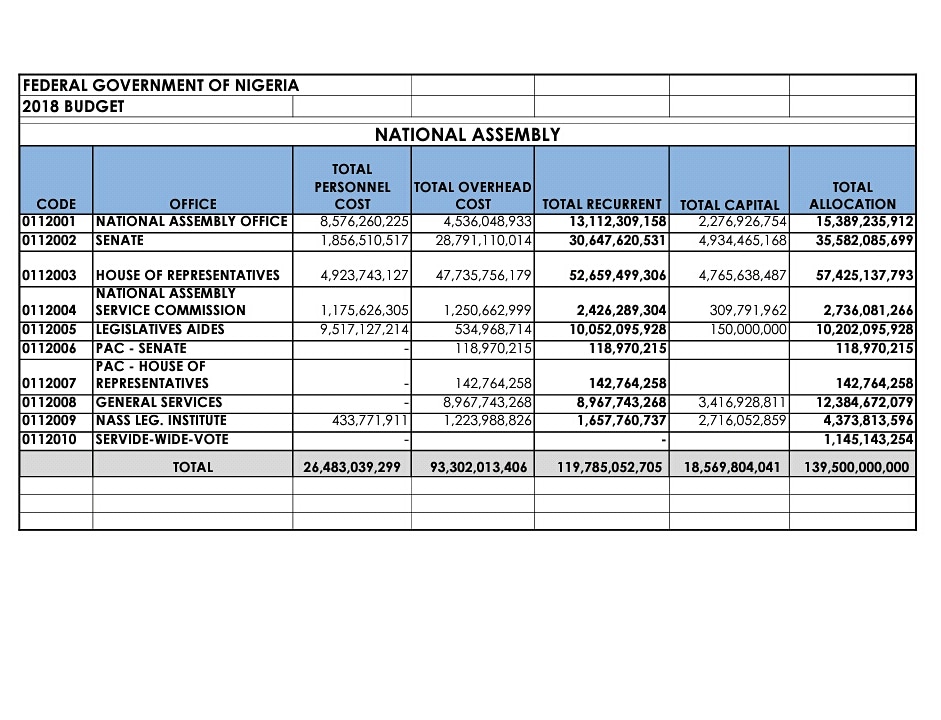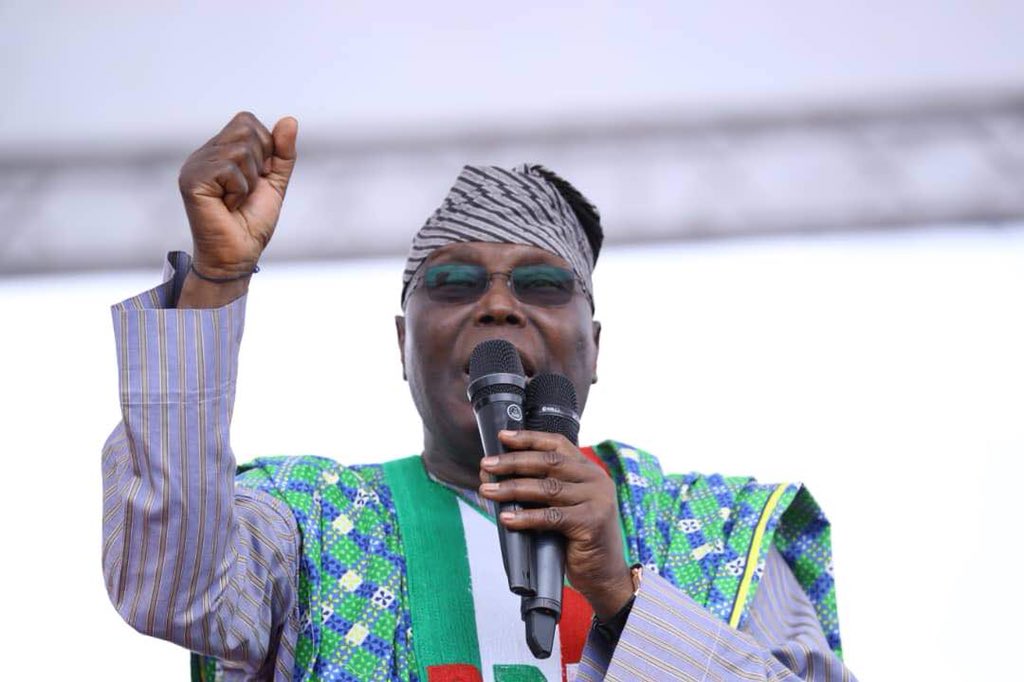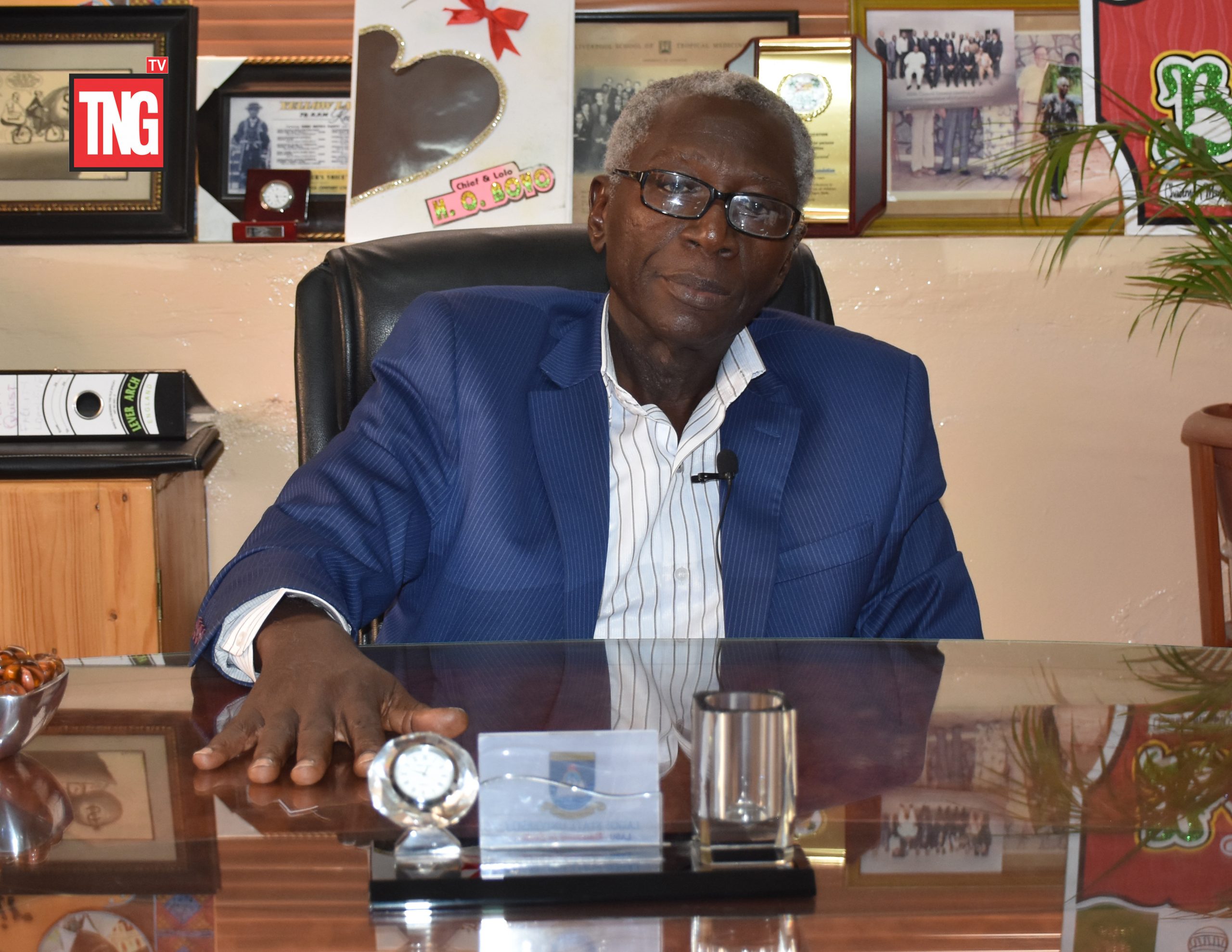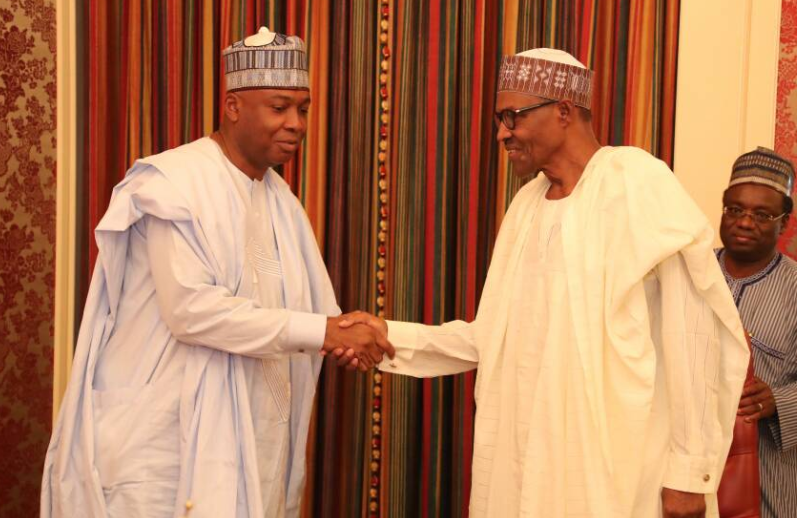|
BY HENRY BOYO
The Deputy Speaker of the House of Representatives, Yusuff Lasun, disclosed, at a Press briefing, last week, that the National Assembly, would interrupt its annual recess and reconvene, sometime, this week, to consider President Buhari’s expenditure proposal for N242bn to conduct 2019 General Elections. It is unclear, why Mr. President omitted this item in the appropriation bill, he presented to the National Assembly in November 2017.
Although, NASS, unexpectedly, also, ignored this glaring omission, nonetheless, Senate President, Bukola Saraki seemed to have fingered the Presidency, for this serious lapse, when he countered, at a Press Briefing, last week, that “from January through June, the lawmakers were on ground” yet “nobody from the Executive made any request for additional funds for the INEC”.
Curiously, nonetheless, the Legislators, clearly, remembered to allocate N578bn for “constituency projects”, for themselves, without prior agreement with the Budget office. Incidentally, the N9.1Tn 2018 budget, is nominally, Nigeria’s largest annual fiscal plan ever; the indifference of the Budget office and MDAs in defending these budgets, according to NASS, delayed approval till May 2018, while Buhari belatedly assented the bill on June 20th, 2018 i.e. 6 months into the budget year; invariably, successful budget implementation will, as usual, become a challenge.
It seems however, that, no lesson was learnt from the unresolved challenges that, ultimately, resulted in the expenditure of ONLY N1.49Tn, out of the N2.029Tn actually allocated for Capital projects in 2017. Arguably, however, with barely 4+ months to the 31st December, and the imminent Election season, the chances are slim that the N2.8Tn Capital budget for 2018 will also be fully applied.
However, Buhari’s, later request, on July 17th 2018, is for the National Assembly’s permission to alter the expenditure pattern of the already, enacted 2018 fiscal plan, so that N242bn, required for 2019 elections, can be deducted from the N578bn, already appropriated, by the National Assembly, for its members’ constituency projects in 2018.
The begging question here, of course, is why did Buhari turn round, after 3 weeks, to contradict his earlier endorsement of the same Appropriation Act, and request for virement; invariably, with the apparent, incessant discord between the Presidency and the National Assembly (composed, ironically, until lately, with a working majority of Mr President’s party), ultimately, a probable compromise, would be for Buhari to submit another supplementary Appropriation bill, separately, for the 2019 elections, rather than insist on a virement for N242bn.
Nonetheless, such supplementary appropriation, plus the payment of N348bn, outstanding 2017 fuel subsidies to oil marketers, would, expectedly increase the projected initial 2018 deficit, from N1.9Tn to almost N2.5Tn, and definitely compound an oppressive debt burden, which, reportedly, already gulps over 40 percent of aggregate revenue, annually, just for debt service. Instructively, if NNPC’s accumulated subsidy claims, as sole importer, are also recognized, the 2018 deficit could well exceed N3Tn!
Furthermore, INEC’s seemingly bloated bill of N242bn is also worrisome, as it is clearly the largest nominal election budget ever, especially when, population may have only increased marginally, and barely N93bn was spent on election expenditure in 2015. Furthermore the procurement of multiple-use basic hardware, for technology driven elections, with individual data capture, card readers and other modern electronic facilitators, were earlier, reasonably and adequately provided with N93bn in 2015.
Besides, there is still also, no available public disclosure of details of the disbursement of N2.029Tn capital allocation for 2017; however Finance Minister, Kemi Adeosun, reported lately, that only N1.49Tn has been spent, so far, from last year’s capital budget. There is, however, no official confirmation that the N538bn ‘unspent’ budget was carried-over to supplement the 2018 budget; so where is the balance? Arguably, rather than compound the subsisting N1.9Tn budget deficit, with additional loans, to fund the 2019 elections, surely, the unutilized balance of N538bn from 2017 Capital budget, could still be appropriated, as supplementary to 2018 budget, without the need for more borrowing, for elections, especially, when oppressive interest rates prevail.
Besides, with barely 4 months to December 31st 2018, it is highly unlikely that the 2018 N2.87Tn allocation for Capital expenditure will be totally utilized; as usual, the unspent allocations, will be carried forward without due diligence, only to probably disappear, once a fresh Capital vote is approved for the incoming year.
Instructively, despite the reality that the present fiscal process, clearly challenges full implementation of Capital budgets, the funding of infrastructure, with expensive government loans is clearly disturbing. Why should the budget be funded with unusually high double-digit interest rates when, clearly, an underlying inchoate budget process, will invariably impede comprehensive implementation of the Capital budget; inexplicably, such unspent funds are rarely ever captured or carried-over to reduce public debt.
Regrettably, this macabre budgeting process has so inebriated our fiscal plans, such that, very little can be identified, on ground, as product of the Trillions of Naira, allocated to elevate social infrastructure in recent years.
This regrettable, self-serving pattern of funding infrastructure with bloated, and inappropriately high cost government borrowing, even when free funds could be garnered for the same purpose, is equally worrisome. Instructively, nonetheless, discipline and creative financial engineering, with strict audit of projects agreements and well defined expenditure guidelines to ensure best practice, all unspent funds, can be captured across board, in all MDAs, and consolidated for application in the following year’s budget.
Expectedly, such adroit financial management would rustle feathers amongst the freeloaders, primarily in the Banking sector, the National Assembly, the Federal Executive and possibly most MDAs, where the return of unspent budget is possibly a rarity. Nonetheless, the underlying reality of this loose fiscal process, is probably best captured in the current application of the so called Government’s Excess Crude Account. The noticeable practice is that the budget benchmark price for crude export, is always deliberately well underestimated. Indeed, there is hardly a year, in which, average market price, and export value of oil fell below the benchmark price for any significant period. Consequently, the surplus revenue, from sales above budget price, is usually conscripted into a contraption called an “Excess Crude Account (ECA)”.
Best practice financial management recommends, that fortuitous surplus revenue above budget benchmark should be applied to fund or reduce any deficit earlier projected in each year’s fiscal plan. Regrettably, this is never the case; invariably, despite fortuitous revenue surplus, garnered from higher crude prices above benchmark, every year, government still proceeds, to borrow, regardless of the attendant, inappropriately high interest rates, in order to fund a deficit, which was deliberately predicated on very conservative oil price benchmark. Inexplicably, therefore, significantly higher actual crude price above benchmark and related revenue has, never stopped, Nigeria’s Debt Management Office, from religiously borrowing, to fund these annual ‘ghost’ deficits, even when surplus’ funds garnered from fortuitously higher crude price and output would reduce or eliminate such borrowing.
Inexplicably, nonetheless, even after loans have been taken to fund these ‘mischievously’ projected deficits, the ‘surplus’ funds consolidated from higher than budget benchmark oil price, is usually shared amongst the tiers government, without any overt approval by the National Assembly, as constitutionally required. Ultimately, CBN would also proceed, despite the inflation any impact to substitute the higher foreign revenue, with very bloated Naira allocations, at a pre-determined exchange rate to government and its agencies. There is no gain saying that if any revenue above budget expectation was used strictly to eliminate annual deficits, instead of borrowing, obviously, Nigeria’s loan burden would recede; unfortunately, this has never been the case; sadly, in 2018 Budget, nothing has changed as loans will still be aggressively accumulated by government to fund the budget, even when oil prices, presently hover nearer $70/barrel, and provides surplus revenue above budget projections, in place of a projected revenue shortfall, which is deliberately sustained with the adoption of $45/barrel budget price for crude oil in 2018. |



![CATBAN protest in Abuja, demand to see legislators [Photos]](https://thenewsguru.ng/wp-content/uploads/2018/07/ImageFile-6.jpg)


